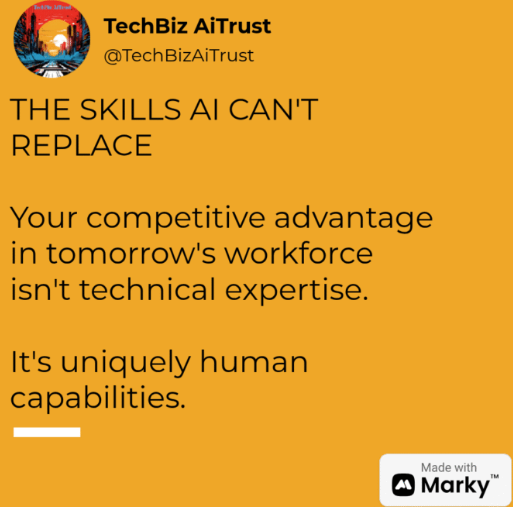The Evolution of Skills in the AI-Driven Workplace 🚀
As AI continues to reshape the modern workplace, the skills that are most valuable are not necessarily those that are traditionally associated with technology. Instead, skills like critical thinking 🤔, creative problem-solving 💡, and emotional intelligence ❤️ are becoming increasingly important. This shift highlights the need for workers to adapt and upskill alongside AI, rather than viewing it as a replacement.
Emerging Trends and Skills
Critical Thinking and Problem-Solving:
- Definition: Critical thinking involves analyzing information, evaluating evidence, and forming judgments 🤔, while creative problem-solving involves finding innovative solutions to complex problems 💡.
- Importance: These skills are crucial in environments where AI tools are used to analyze data and provide insights, but human judgment is still needed to interpret results effectively.
Emotional Intelligence:
- Definition: Emotional intelligence refers to the ability to recognize and understand emotions in oneself and others and to use this awareness to guide thought and behavior ❤️.
- Importance: As AI automates more tasks, emotional intelligence will become more essential for managing teams 🤝, building strong relationships, and making ethical decisions.⚖️
AI Literacy and Data Skills:
- Definition: AI literacy involves understanding how AI tools work and how to use them effectively 🤖, while data skills include the ability to collect, analyze, and interpret data. 📊
- Importance: These skills are vital for professionals who need to work with AI tools, such as using ChatGPT or other AI-driven software.
The Future of Work: Emerging Job Trends
- 85% of Jobs in 2030 Haven’t Been Invented Yet! 🤯: This statistic underscores the rapid pace of technological change. The future of work is not just about adapting to current technologies but also preparing for roles that do not yet exist.
- Adapting to AI: Rather than focusing on whether AI will replace jobs 🤖, the emphasis should be on learning how to work alongside AI. This involves acquiring skills that complement AI capabilities, such as creativity ✨, empathy 🤗, and complex problem-solving.🧠
Key Statistics and Insights
- Skills Shift: The skills needed for work are expected to change by about 70% by 2030, with AI accelerating this shift significantly📈.
- Employer Demands: Skills changes are happening 66% faster in AI-exposed occupations, with a decrease in the demand for formal degrees in these roles🎓.
- Upskilling: There is a growing need for workers to upskill, particularly in AI literacy, to remain relevant in the job market⬆️.
Prioritizing Skills in the AI Era
In this evolving landscape, it’s crucial to focus on skills that AI systems cannot easily replicate:
- Human-Centered Skills: Focus on skills that are uniquely human, such as emotional intelligence ❤️, creativity ✨, and empathy 🤗.
- AI Literacy: Developing a basic understanding of AI tools and their applications is essential for effective collaboration with AI systems 🤖.
- Adaptability and Continuous Learning: The ability to adapt quickly to new technologies and continuously learn new skills will be vital for career success 🌱.
By embracing these skills and adopting a mindset of lifelong learning 📚, individuals can thrive in an AI-driven workplace and unlock the full potential of AI in their careers.
Stay tuned for more updates on how technology is reshaping the logistics landscape! If you’re interested in exploring how automation can benefit your business, check out Make.com for innovative solutions https://techbizaitrust.com. Post Content on your Socials, check out https://mymarky.ai/?fpr=techbiz74
